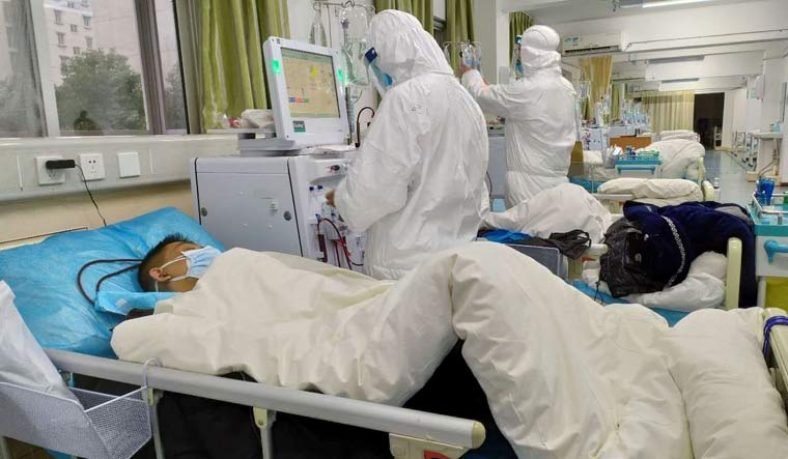STD Risk Assessment

- 1 Test included
- 200+ Booked in last 7 days
This package covers
Why should you book this package?


- Free consultations with top Doctors
- Sample pickup at home
- Online reports within 48 hours
STD Risk Assessment
What is STD?
STD stands for Sexually Transmitted Diseases that are spread from person to person during sexual intercourse or may infect another person through blood or other bodily fluids. Some types of STDs are transmitted nonsexually as well – this may occur through shared needles or during pregnancy, childbirth, or blood transfusions. There are various types of STDs that are caused either by bacterial or viral infections. An STD caused by bacteria or a virus is a critical illness that needs immediate medical attention. While a few types of STDs can be treated by a gynecologist or andrologist, STDs like HIV need multidrug therapy and follow up assessments. Speak to a general doctor online the moment you feel you exhibit common STD symptoms and let them guide you to a specialist for streamlined STD treatment.
When should you get an STD testing done?
It is recommended to opt for an STD blood test if you are sexually active. Whether you have one partner or multiple partners, you should get an STD check-up to ensure you are free of any infections. You should also get an STD screening if you exhibit a few of the common types of STD symptoms.
Typical STD causes and symptoms vary based on the type of STD. Some viral STDs and STDs caused by bacteria that are transmitted through sexual contact do not always exhibit symptoms, making it difficult to detect an infection.
The most common symptoms of an STD include the following:
You should always avail an STD screening when you first become sexually active, as well as before and after seeing a new sexual partner. Avail an STD blood test with medkare to get a free consultation from a general physician, gynecologist, or urologist in.
What are the types of STDs that can be diagnosed by testing?
Learning about the types of STDs, the common symptoms of STD and modes of treatment is a good way to protect yourself from the diseaseS and their accompanying medical conditions. Few of the most common types of STDs are:
HIV and AIDS: HIV stands for Human Immunodeficiency Virus. It is a viral STD that enters the body either through unprotected sex with an affected individual or by the sharing of needles or through blood transfusions. HIV leads to AIDS. Common symptoms of HIV include headache, frequent fevers, weight loss, swollen lymph nodes, etc owing to a compromised immune system.
Syphilis: Syphilis disease is a bacterial infection that spreads through sexual contact. Typical symptoms of syphilis include the occurrence of sores, that is initially painless, in the genital areas, mouth and rectum. Physical contact with these sores and the mucous of the affected individual can lead to the spread of syphilis disease from person to person. The disease varies in men and women in terms of the symptoms. Syphilis in men occurs as rashes not only on genital parts but also may appear on the palms and soles, whereas syphilis in women appears as small sores at the site the bacteria enters the body. This is usually in the genital area for women. Since this is an STD caused by bacteria, syphilis is curable in the early stages but can become severe and fatal if left untreated. This is why STD screenings and follow up syphilis treatment is of the utmost importance to prevent further damage.
Chlamydia: This is a very common type of STD mainly because the symptoms of chlamydia are very hard to identify. It can also be easily passed from one individual to another. The common symptoms of chlamydia in women are painful periods and pain while urinating and during sex. In men, the common symptoms of this type of STD are the swelling of testicles, burning sensation while urinating and cloudy discharge. You can take up a Chlamydia test to diagnose the condition. STD treatment for chlamydia is of the utmost importance since it is difficult to detect. If left untreated, STD risk factors like permanent damage to the reproductive system can occur.
Genital Warts: As the name suggests, genital warts are a type of STD that cause tiny growths on the genital area of individuals. They can be permanently treated once the underlying reason and STD causes for its occurrence are addressed. They are sexually transmitted and are caused by the HPV virus (Human Papilloma Virus). The warts are usually accompanied by discomfort, pain and itchiness.
Other types of STDs are genital herpes, gonorrhoea and trichomoniasis, to name a few. You can consult with a gynecologist, andrologist, fertility specialist or general physician for expert medical advice.
What to expect during STD testing?
An STD screening is generally done using a blood test and urine test. Firstly, STD causes and symptoms are analysed and later prescribed for a health screening to confirm the presence of an STD. With the onset of any symptoms or at the start of becoming sexually active, it is vital to get yourself checked with an STD blood test at home. You can book an appointment online for STD check. You can opt for the risk assessment package using the medkare that covers all the essential tests for STD confirmation. A medical professional from Healthians or Humain Health will visit your home and collect the samples for the STD blood test from your doorstep. Download the medkare for a quick and effective STD diagnosis and consult the best gynecologist or andrologist.
Frequently Asked Questions:
If you are sexually active with one or multiple partners, you should avail an STD blood test at home or at the nearest clinic to ensure you and your partner are clear of any types of STDs. You should also get an STD screening if you find that you are presenting any symptoms of an STD.
An STD check is very important if you are sexually active since several bacterial and viral STDs do not present obvious symptoms, and if left undetected and untreated, can prove to be fatal. Early detection and immediate STD treatment can prevent STD risk factors from aggravating. You should consult with a gynecologist, urologist, or general physician in Bengaluru to understand protective and preventive measures if you are sexually active.
Once the samples of your STD blood test have been collected, it takes 48 hours to process and analyse the results in our partner labs. Once this is completed, the STD screening results will be uploaded onto your profile on the medkare.
A general physician, gynecologist, or urologist will analyse your STD blood test reports and speak to you regarding the diagnosis. In case you test positive for any type of STD, they will consult with you and guide you on STD treatment and any further follow ups.
About Us
MedKare
MedKare is a holistic healthcare company that aims to make healthcare accessible and affordable in the country. In order to streamline the functioning of the health industry, we have brought doctors, pharmacists, phlebotomists and consumers under one digital ambit. This will save you from the burden of waiting in long queues, riding to a medical store or visiting a doctor.




